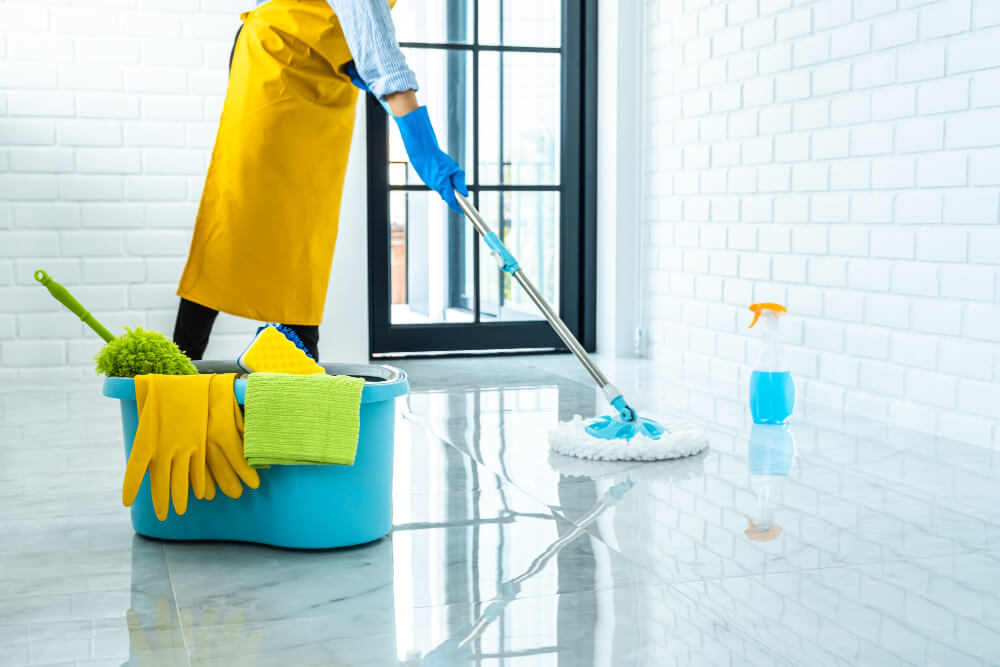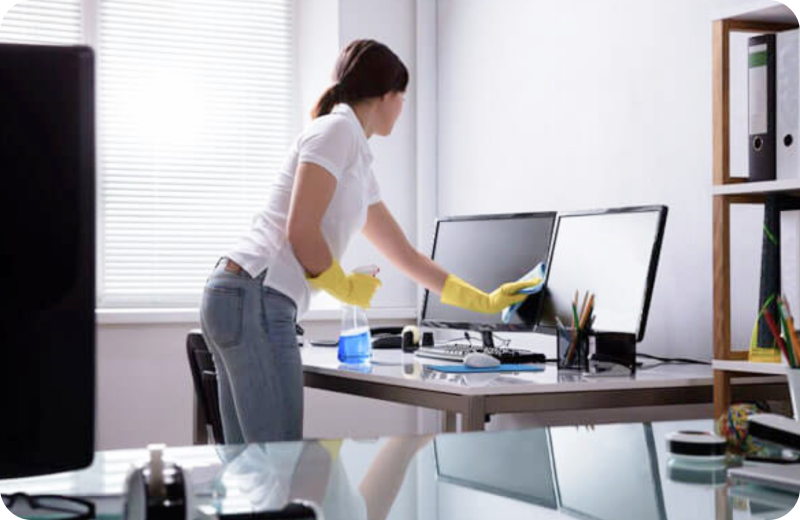





Allergies are fairly common during pollen season outdoors, but what about sneezing and sniffling in the office? Allergies out of allergy season can mean a dusty office, mold, or food risks! Having allergens in the workplace isn't uncommon, but is certainly a hindrance to work and productivity when employees are constantly sneezing all the time.
Additionally, allergens in the workplace can also be life-threatening. A percentage of the general population may have life-threatening allergies to certain products, ingredients, and food when in close proximity to the allergen. This may become an occupational safety hazard for the individual, and can lead to anaphylactic shock when exposed to allergens.
As part of the operational workforce around the office, you need to be aware of the common workplace allergens that can cause allergy symptoms. Workplace allergies can cause different allergic reactions such as sneezing, itching, and allergic rhinitis. In more severe cases, they can cause occupational asthma as well.
Common Allergens in the Workplace
Common allergens in the workplace include typical dust and debris, but workplace allergens can also be in the form of any occupational health hazard that can irritate the respiratory system, such as fabric fibers, food allergies, and animal dander.
Dust and Debris
Dust is inevitable around the office. Unfortunately during peak allergy season, dust can include pollen, dead skin cells, fibers, and other microscopic particles that can get into our respiratory systems and cause an allergic reaction. Dust and debris can be found anywhere, but if your workplace is particularly dusty, allergic diseases can flare up much worse than usual.
Food Allergies
Food allergies present another occupational health concern, particularly for any allergic employee that may have life-threatening issues with certain foods or ingredients such as gluten. Under the disabilities act, a workplace must consider employees' allergies in the workplace to provide a safe, clean, and healthy work environment for all workers.
Animal Dander
Pet hair and pet dander can post as common allergens, particularly in workplaces that allow pets in the office, or workplaces that work with animals like veterinarian offices, pet groomers, zoos, and even taxidermy offices. Workplaces located near these offices can also get a fair share of animal hair and dander, which can cause allergic manifestations in employees.
Mold and Other Common Allergens
Other common workplace allergens can come from anything that can be irritating to the skin and lungs. Low-quality cleaning products used in office cleaning can sometimes have harsh chemicals that can cause skin disorders. Unsafe cleaning practices, such as spraying disinfectant while employees are working in the office, can also cause allergies, as well as improper rinsing of cleaning solutions.
Mold growth can cause respiratory reactions as well, and can stem from an unclean and damp office environment. Humidity can also negatively impact respiratory systems and cause skin issues to flare up. Some species of mold can specifically target skin, causing itching and distress on the employee.

Negative Impacts of Workplace Allergies
While most allergies aren't life threatening, they do pose negative impacts on both the health of an individual, and the productivity around the workplace. After all, asthma, itchy eyes, and sneezing can greatly hinder your work, causing you to lose focus and decrease efficiency.
Allergy Symptoms
Most respiratory allergies present as sneezing, sniffling, runny and tender eyes, itchy nose, and occasionally a runny nose due to your respiratory lining being irritated by tiny particles. Most allergic symptoms don't pose much health threats, but can be distracting at work.
However, for those with life-threatening or specific allergies, hypersensitivity can be an issue that can result in health hazards. These can quickly turn into medical issues, incurring medical costs shouldered by both the company and the employee.
Allergic Rhinitis
Rhinitis, or hay fever, typically flares up when dust and other allergens put stress on the lining of the lungs and respiratory system of an individual. Symptoms include feeling an obstruction in the nose, sneezing, itching, and a runny nose that includes post-nasal drip.
Rhinitis can be particularly challenging to overcome while working, causing a significant decrease in productivity. Best to consult an allergy specialist if you have recurring rhinitis to prevent any damage to your body. Medical costs of treating rhinitis due to workplace allergies should be shouldered by your company.
How to Manage and Avoid Office Allergies
Office allergies can often accumulate in carpets, drapes, and other absorbent materials that are not cleaned often. Removing these from your workplace can greatly decrease the chances of allergies in your office. Cleaning your office is a must to remove allergy-causing particles around the office.
When dealing with mold, protective gear can be worn to ensure that the cleaner is free from any allergy or asthma attack, as well as any health hazards from coming in contact with mold spores. As there is no prevention for dust and pollen getting in the office, best to use an air purification system that can filter out these particles before anyone can breathe them in.
Food is also an issue. As an employer, you will need to know each specific allergy an employee has, and consider these in the workplace. For example, employees allergic to shellfish should not work near shellfish products, and any employee with Celiac disease will need to avoid gluten and other irritants.
Sensitivity training sessions are not only geared towards creating an open and diverse workplace, but also to consider the allergies, disabilities, and health issues of each and every employee in the workplace, especially when it comes to food allergies.
Cleanliness is Key
Above all, keeping a clean workplace is essential in keeping irritants at bay. Luce SG provides thorough top to bottom cleaning for commercial spaces all across Singapore, and our office cleaning experts ensure that allergens are kept away from your office by removing dust, debris, and common irritants from your office.
Keep work productivity up, and avoid allergy season with top-notch cleaning services! Our scheduled cleaning can help you keep your office clean, which is key in preventing allergy-causing particles from affecting your work and your employees. We also provide disinfection, mold removal, and other services to maintain a health-conscious work environment.




















